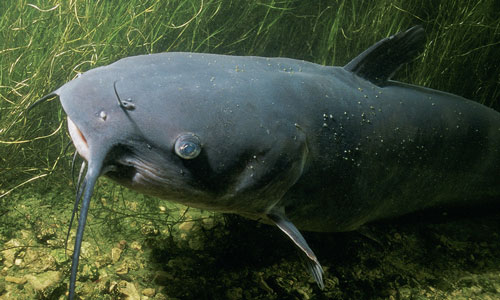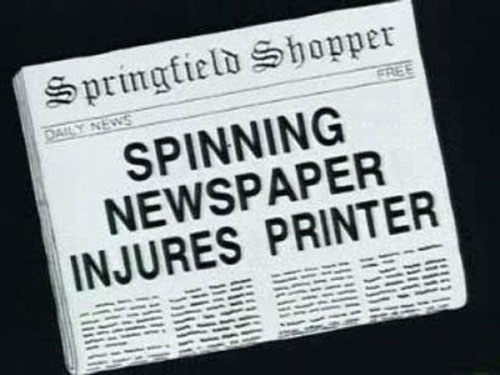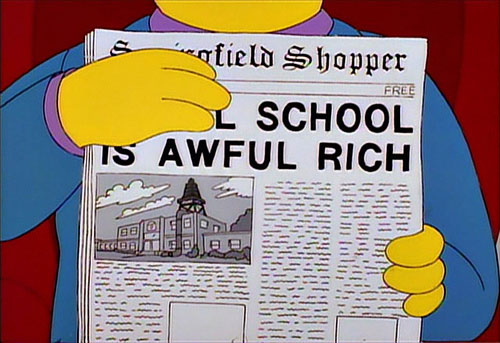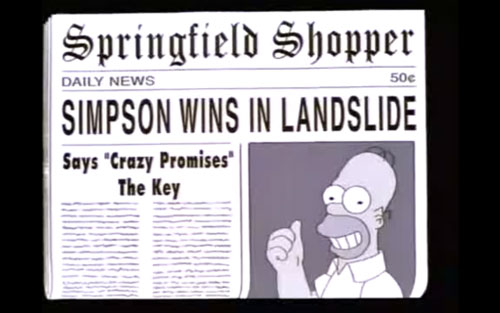A Finish Line In Sight
The state of our tedium in 2017 is a bit worrying, but there are just enough bright spots to make yet another year of drudgery worthwhile.
Editor’s note: For those playing at home, compare this one to our other New Year’s issues—here’s 2015 and 2016 .
$28
The amount the International Spy Museum is charging for a 2017 CIA-themed wall calendar titled “Secret Ops of the CIA.” The calendar was made by a man named Erik Kirzinger, who first came into contact with the CIA in an effort to recover his uncle’s remains. (His uncle was a CIA contractor who died during a 1952 mission.) The CIA, being the CIA, is incredibly protective of its branding and apparently had never been the subject of such a calendar before. So Kirzinger took up the task, commissioning artworks based on the CIA’s long history. Despite Kirzinger’s years of work and research (and the impressive quality of the art), however, the CIA chose not to sell the calendar at its own gift shop because, according to the CIA museum’s director, “it’s not an official work of the U.S. government.” (I’m down on wall calendars, but at least a lot of work went into this one.)

A catfish that may soon find itself on the liberating end of a pitchfork. (Pixabay)
Five signs 2017 will be better than 2016
- Starting in January, Illinois residents can now fish for catfish “by pitchfork, underwater spear gun, bow and arrow or bow and arrow device, including a sling shot bow, spear, or gig.” Good news for fans of pitchfork fishing.
- In California, you’ll be able to get a buzz with your buzz cut. California is about to allow hair salons and barber shops to start serving a complementary glass of beer or wine with their haircut, without a permit—on the condition that the alcohol is free.
- Good things come to those who wait. And as proven by a recent saga in the Chicago area, the waits are getting shorter. A five-month-old boy with a rare liver disorder needed a transplant. Fortunately, one was found within 40 minutes. Let us all be so fortunate.
- As Superchunk frontman Mac Macaughan pointed out in his new song, at least Prince can’t die again. Neither can Leonard Cohen or Carrie Fisher.
- And most importantly, a long-in-production new version of DuckTales is finally hitting TV screens later this year, giving you at least one reason to make it through to summer.
“The information is going to lead to some really good lead time for things like severe weather. It’s probably one of the biggest advances we’ve had in the weather world for a long time.”
— William Rasch, a science and operations officer for the National Weather Service, explaining to News Deeply the forthcoming advantages meteorologists expect to receive from the GOES-R satellite, which launched at the end of November and is likely to become operational sometime within the next year. The satellite is said to be extremely advanced and will make it possible to forecast the weather earlier than ever. “That means if I’m looking at a thunderstorm, before I wouldn’t get a picture of a storm but every 10 to 15 minutes,” Rasch explained. “But now, I’ll get a picture every 30 seconds. We’re going to see a lot more data than we were before.”

The state of our Tedium in 2017 is best defined by the fact we don’t know what “fake news” looks like
Something weird happened during the last month of 2016: The phenomenon of “fake news,” which had become one of the defining elements of the 2016 election, became intensely politicized.
First gaining steam around the time of the election due to concerns that these stories (buoyed by social networks like Facebook) may have misled voters about the political candidates, the issue took on a messy veneer when political hard-liners started appropriating the term to attack legitimate news sites and online stalwart Snopes found itself the target of unprecedented scrutiny.
So we’re closing 2016 with an immensely important role within our media suddenly facing unprecedented attacks—a glut of bad information mixed with an unwillingness to embrace the good. We’ve devalued the fact checker because the fact checker is telling us things we don’t want to hear. So now, the fact checker is fair game.
The thing is, though, the idea of “fake” stuff on the internet is one of the medium’s greatest products. In the late ’80s, for example, a guy apparently named “Dave Rhodes” had figured out how to turn the chain letter into a digital tool. And the news industry has been getting misled by their sources for decades. Hoaxes are, in many ways, a language that the internet only accentuates. So we need to understand that as we’re getting high on information, we could be getting high on the wrong supply.

This issue is likely to get even worse as 2016 tuns into 2017. Those “hoaxes” once skittered on the edges of the mainstream in a way Penn & Teller spent nearly a decade decrying on premium cable as Bullshit. Now, they’re in the middle, more pervasive due to how we get them. In the days of newspapers and television, gatekeepers helped suss out the good from the bad. Now, there are so many gates that we can’t even tell them apart anymore.
Is the problem our culture’s collective reading comprehension? Certainly, there’s evidence of that, as highlighted by this recent Stanford study of student reading comprehension—a study that began long before the current debate, and one that found that schools aren’t keeping up in their detection of likes or misinformation.
"In every case and at every level, we were taken aback by students' lack of preparation," the authors wrote in their study.

Combine this with the recent desire by many to call legitimate news outlets “fake news,” and suddenly, it feels like we’re playing a pretty dangerous game as a culture.
Whatever your political persuasion, don’t let fact-checking become the victim of a witch hunt. Instead, do your homework. Click links and see where the original quotes came from. Look for evidence. If a site appears to be making fast-and-loose claims about one scandal or another, don’t perceive it in terms of whether you want it to be right. Put up your guard. Follow noted strategies for figuring out whether something is fake or not. If you don’t like Snopes or Politifact, find a fact-checker you can live with.
And appreciate that when it comes to misleading information, the stakes are higher than they seem.
Not everyone has the same level of Spidey-sense.
In my part of the world—the part that has largely ignored many of the year’s most mind-numbing stories in the name of counter-programming—I’ve learned a lot of interesting facts about the human condition: That pieces of history that happened even relatively recently, like the demise of the analog television signal, often have hidden elements that deserve fresh context.
That objects that might seem pretty innocuous, like hipster mattresses , can be lit fire kegs in the right context.
That you can have significant debates about topics that appear unsalvageable, like the word processor.
And that lots of people find cheese curls and Hot Pockets—really, any kind of junk food—endlessly fascinating.
Clearly there’s a demand for tedious stuff that we didn’t anticipate to find to this degree. As a response, to start out 2017, we’re making a small change to the way we do Tedium: We’re still going to publish the two issues we usually do each week, but we’re also going to publish a series of small articles each week, separate from (but shared via) the newsletter.
On Monday and Wednesday, we’ll do follow-ups to prior posts or highlights from other stories written in the spirit of Tedium; on Friday, we’ll highlight weird objects we found in our online shopping adventures.
The reason for this strategy: We have stories to follow up on that the newsletter format is poorly suited to handle, and other media outlets cover tedious things that deserve notice. These new pieces will be short—300 words or less—and may incorporate elements from my ShortFormBlog days. But no hard news. Still working out the elements. To give you an idea, here’s a brief explanation of the change, done up in the new post style we’ll be using for these. We’ll be sharing more items like these starting Monday.
The state of our Tedium is such that we need a little more of it than ever, to numb out the weirdness of an ever-stranger world surrounding us. So, we’ll be offering it.
Anyway, Happy New Year. Don’t burn yourself making jalapeño poppers.
:format(jpeg)/2017/06/tedium122916.gif)
/2017/06/tedium122916.gif)

/uploads/ernie_crop.jpg)